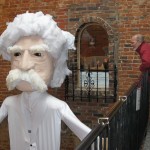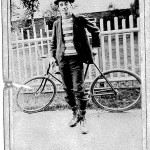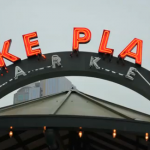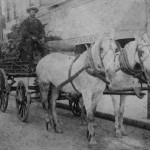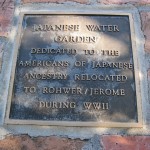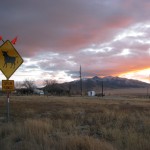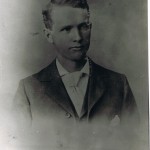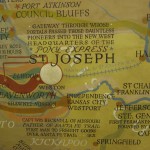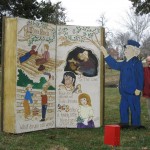We have stopped at what remains of Bryant’s Grocery & Meat Market, Money, Mississippi, site of an incident that led to a brutal murder that helped kick-start the civil rights revolution.
On August 14, 1955, Emmett Till and his cousin, Wheeler Parker, who were visiting Money on vacation from Chicago, purchased candy at Bryant’s store. Apparently Till, 14 years old, whistled at Carolyn Bryant, the white store attendant.
Two weeks later Bryant’s husband, store owner Roy Bryant, and his half brother, J. W. Milam, kidnapped and killed Till. They used barbed wire to tie a 75-pound cotton-gin fan to his neck and tossed his body in the Tallahatchie River.
Twelve white men acquitted Bryant and Milam, who later confessed to the murder, after deliberating only 67 minutes; a juror said they would have taken less time if they had not stopped to drink sodas.
I am on the side of the road, writing about Bryant’s Grocery in my reporter’s notebook—fading white-washed brick, collapsing wooden roof, peeling white plaster—when a man slowly approaches in his white pickup. I smile and wave.
He smiles and waves back, gets out of his truck, and proceeds to introduce himself as Charlie Brunson, 70, from Philipp, 10 miles to the north on Rte. 8, He said he grew up in Payne, Mississippi: “I lived up in the hills. There was nobody up in there.”
What can Brunson tell me about Money? Well, he says, there used to be five or six stores to the east of Bryant’s Grocery, but they were torn down after the post office closed last year. As for the railroad building, now located behind Bryant’s, “all the old folks used to gamble in there,” and a man lost his 5,000-acre farm. The abandoned Bryant’s has been bought by Harry Tribble but nobody knows its future.
The building’s horrible past, however, is explained out front on a sign, “Marker No. 1 on the Mississippi Freedom Trail, dedicated May 18, 2011,” on the 50th anniversary of the Freedom Rides.
I take that marker to be a sign of progress. At so many locations of horrific events of significance in U.S. history—the lynchings in Marion, Indiana, the torture-murder of Matthew Shepard in Laramie, Wyoming—the community has chosen not to erect a sign, as if that will sanitize our history and help us forget how ugly we can be to each other.
Loren Ghiglione


